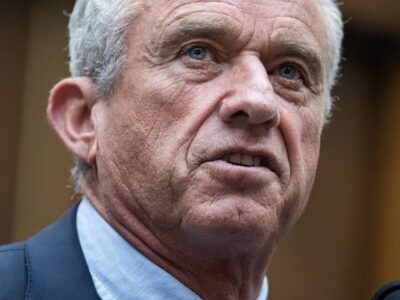Five Key Cal. House Races and the Environment
These are among the races most likely to determine control of the House.
I’ve tried through the past few elections to provide information about the environmental views of Senate candidates in competitive races. There are too many House races for me to do the same thing on a national basis. But I thought I could at least cover the environmental dimensions of some of the key races in California.
I chose these House seats because there seemed to be a lot of consensus among commentators that they were in play. Some of them may turn out to be one-sided as we get further down the road, and some other districts may well turn out to be competitive. A lot will depend on whether the “Blue Wave” turns out to be a tsunami or a ripple.
There are two open seats and three GOP incumbents in these races. The incumbents have uniformly dismal environmental records. Interestingly, the Republican candidates generally gloss over their anti-environmental views on their websites. This mat be partly because in California, even a sizable percentage of Republicans are pro-environmental, according to a recent poll. Democrats are much more likely to make a point of mentioning the environment.
Here are the races, listed by district numbers (with incumbents where applicable), along with the views of the candidates.
Jeff Denham (10th District). This district in the Central Valley is closely balanced: Denham had a 3% margin in 2016, and Hillary Clinton carried the district by the same amount.
Denham, the incumbent, has a League of Conservation Voters (LCV) lifetime rating of 6%. His campaign website supports an “all of the above” strategy and touts his support for the Keystone XL pipeline. His official congressional website says very little more, apart from the Republican obligatory call to eliminate regulations of all kinds. Apparently, being anti-environmental is not something Denham wants to advertise.
Josh Harder, who teaches business courses at a community college, is Denham’s Democratic opponent. On his website, he gives a personal dimension to his pro-environment positions: “Like many children in the Central Valley, I grew up with childhood asthma because of our high air pollution. We can and must improve our adherence to clean air and water standards and invest in our children’s health.” He also strongly endorses action on climate change.
*****
Steve Knight (25th District). Clinton carried this district north of LA by 7%, while Knight eked out a 3% margin.
Rep. Knight has an LCV lifetime rating of 3%. Apart from a general call to eliminate “expensive red tape” and over-regulation, his website says nothing about energy or the environment.
Katie Hill, who runs an organization providing shelter for the homeless, is Knight’s Democratic opponent. Her website endorses action on climate change and says, “Protecting the planet is not just an environmental issue, but a human health issue. Our families and communities need clean air, water and a non-toxic food supply so we can flourish for generations to come.”
****
Open seat (39th District). This district overlapping Orange County is a prime target for Democrats.
Young Kim, who served a term as a state assembly member before being ousted in 2016, is the Republican on the ballot. One thing that was striking about her website is that she posted her tax returns. Her website says nothing about energy or environment.
Gil Cisneros, a Navy veteran who runs a small foundation advocating for public education, is the Democratic candidate. His website denounces Trump’s decision to withdraw from the Paris Agreement and Trump’s rollback of environmental regulations.
*****
Mimi Walters (45th District). Clinton carried this Orange County district in 2016.
Walters, the incumbent, has an LCV lifetime rating of 4%. Under a picture of an off-shore oil rig, her website calls for ending federal regulations that interfere with energy independence. It also applauds the Supreme Court’s stay of the Clean Power Plan.
Katie Porter, a law professor at UC Irvine and an Elizabeth Warren protégé, is Walters’s Democratic opponent. Her website pledges that she “will take on big oil and the corporate polluters to stop offshore drilling, and will fight to invest in renewable energy development, and support high emission standards and save important environmental protections.”
****
Open Seat — 49th District. This is Darrell Issa’s seat. The district straddles Orange and San Diego counties. Diane Harkey (R) faces Mike Levin (D).
Harkey is a member of the state agency that oversees sales and property taxes. When I visited her website, the only thing under the issues tab was “Foreign Relations,” which was devoted to her fervent support for Israel. While I was searching for sources discussing her views on the issues, about the only thing I found was her proposal that House members be given an 8 p.m. curfew to keep them from partying at night. (No, I didn’t make that up.)
Levin describes himself on his website as an “attorney focused on environmental and energy regulatory compliance and government affairs.” He also calls himself “a passionate believer in clean energy and has over a decade of experience in the industry, helping to accelerate the transition towards more sustainable power generation and transportation options.”








Reader Comments